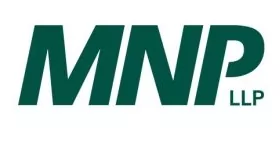Note: This blog was authored by Navjeet Vaid, CPA, CA
Most organizations have documented policies and procedures regarding governance, strategy and risk management, however, this doesn't always translate into success from a Board of Directors' governance standpoint. Fraud still occurs in many organizations, but the Board of Directors play an integral role in fraud prevention, detection and response.
Let's explore the role of the Board of Directors from SNC-Lavalin and its response to the allegations of fraud which arose in 2011. The Board took corrective action and went beyond its typical responsibilities to right the ship at SNC. The Board's response included:
- Hiring outside counsel to conduct an internal investigation of the allegations
- Turning over the results of the internal investigation to law enforcement
- Revamped codes of conduct and improved internal controls
- Increased training and required annual certifications for employees and board members
- Hiring a new CEO with a reputation for ethical values and conduct
- Appointment of a chief compliance officer
- Resignation of four directors and appointment of three new directors
Through these actions, the Board was able to begin the process of restoring SNC's reputation and reduce the risk of a similar event occurring in the future.
Fraud prevention starts in the board room. The organization's vision, mission, policies and tone at the top all trickle down throughout the various layers of the company, from senior management to middle management to front line employees.
Even though a Board of Directors may be comprised of individuals with appropriate education, financial knowledge and experience, fraud and misconduct still occurs in some cases. So why do some organizations fall victim to fraud while others do not?
The difference is in the details. The Institute of Internal Auditors (IIA), the American Institute of Certified Public Accountants (AICPA) and the Association of Certified Fraud Examiners (ACFE) developed a practical guide to managing the business risk of fraud which details the roles and responsibilities of the Board of Directors.
In order to be truly effective in the oversight role, board members must have a mindset of being independent of management or other directors. A board member who is complacent, conforms to the majority or is essentially a 'yes man' cannot provide meaningful governance for an organization. Board members need to be willing to question management and other board members in the decision making and reporting processes.
In addition, board members must ensure they have a deep understanding of the fraud risks affecting the organization. This understanding needs to be more than simply high-level descriptions from management. The board should be aware of how and why the risks arise, how susceptible the organization is to the risk, potential impacts to the organization and the mechanisms, methods and procedures that can mitigate the risk to an acceptable level.
Finally, the Board must have the means, resources and ability to engage outside experts such as forensic accountants, external legal counsel and / or consultants when deemed necessary, whether it be to investigate potential fraud or misconduct, or to seek independent advice in the decision making process.
The keys to a successful fraud prevention strategy are turning paper policies into reality by committing to ethical behaviour, leading by example and holding everybody within the organization accountable for their actions, regardless of their position within the company. All members of the board need to be engaged in their oversight responsibilities through attending and being well-prepared, in advance, for all board meetings.
The content of this article is intended to provide a general guide to the subject matter. Specialist advice should be sought about your specific circumstances.
